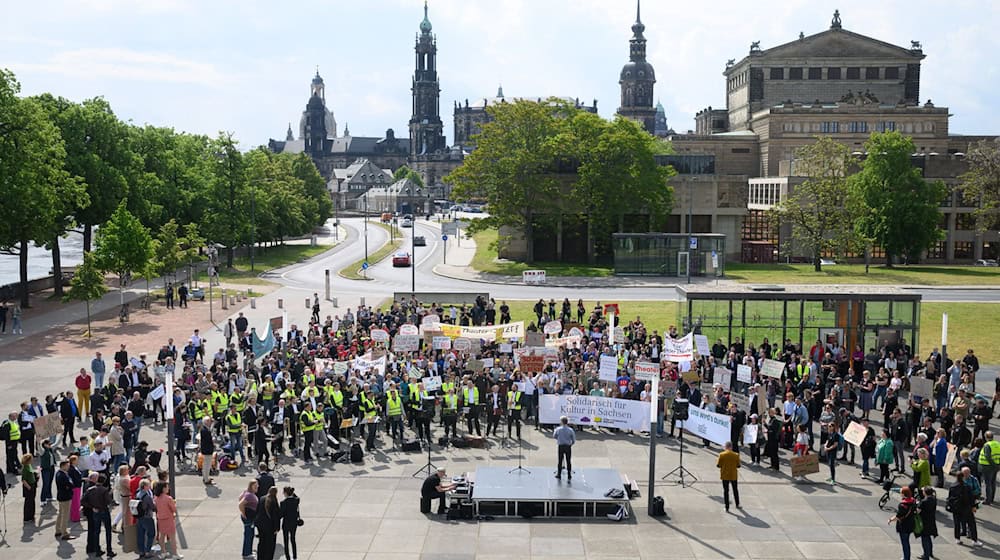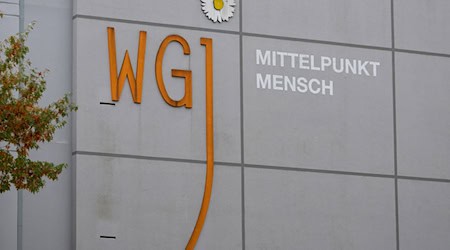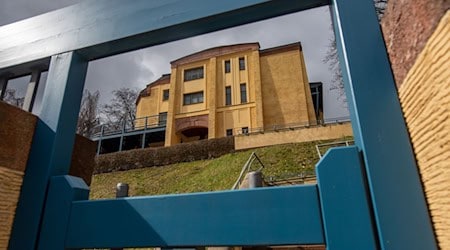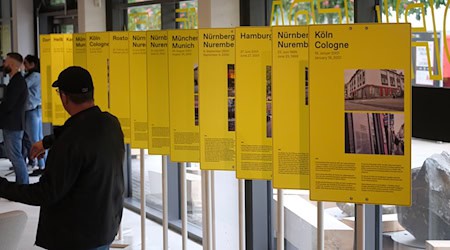Employees of Saxon theaters and orchestras are not silently accepting the planned financial cuts to culture in the Free State. At the same time, they are demanding equal treatment with their colleagues in the state theaters. Parallel to the state parliament session, a good 200 cultural workers gathered in front of the parliament. Musicians from various theatres formed a joint orchestra and played excerpts from Verdi's "Triumphal March" and the "Steigerlied", among others.
Culture Minister Barbara Klepsch (CDU) confessed that she had goosebumps and found it difficult to talk to those affected about the cuts. She had never experienced a budget with such cuts during her time in office. The government had to set priorities and had therefore budgeted the same amount for the Cultural Areas Act as in the previous year. However, it had not managed to add anything, as it had in 2023 and 2024. There had simply been a lack of funds for this.
Minister propagates solidarity between the state and municipalities
"I can only promise that I will do everything in my power to ensure that there continues to be a vibrant, functioning, good and diverse cultural landscape in the Free State of Saxony," said Klepsch. This will be a major effort. The Minister expressed her understanding for the displeasure and asked that we "walk the path together". After all, this could only succeed if the local authorities stood shoulder to shoulder as the responsible bodies.
Ingolf Barth, trumpeter and works council member at the Mittelsächsisches Theater (Freiberg and Döbeln), spoke on behalf of the demonstrators. The municipal theaters had already turned every bill around twice in the past. "The self-circumcision mechanisms are deeply ingrained in the memory of the workforce. And yet all employees try to put on a good show for the audience."
"We don't want to be regarded as second-class theater professionals"
While the state-owned companies will receive 7.5 million euros more to finance personnel costs after the collective wage agreement next year, the municipal theaters will have to make do with less. "We are protesting against this unfair treatment. We don't want to be seen as second-class theater professionals, because we do a good job," said Barth. He called on the government to maintain the payment from the so-called Cultural Pact 2. He also called for a reform of the Cultural Areas Act with the aim of securing the theaters and orchestras in the long term.
Saxony finances culture in the municipalities primarily via the Cultural Areas Act. This stipulates that the three independent cities of Chemnitz, Dresden and Leipzig each form an urban cultural area. There are also five rural cultural areas. The funding of facilities and projects is decided independently in these areas. The state supports the local authorities in financing culture with around 105 million euros per year. The cultural areas levy a contribution to finance their share.
Copyright 2025, dpa (www.dpa.de). All rights reserved










